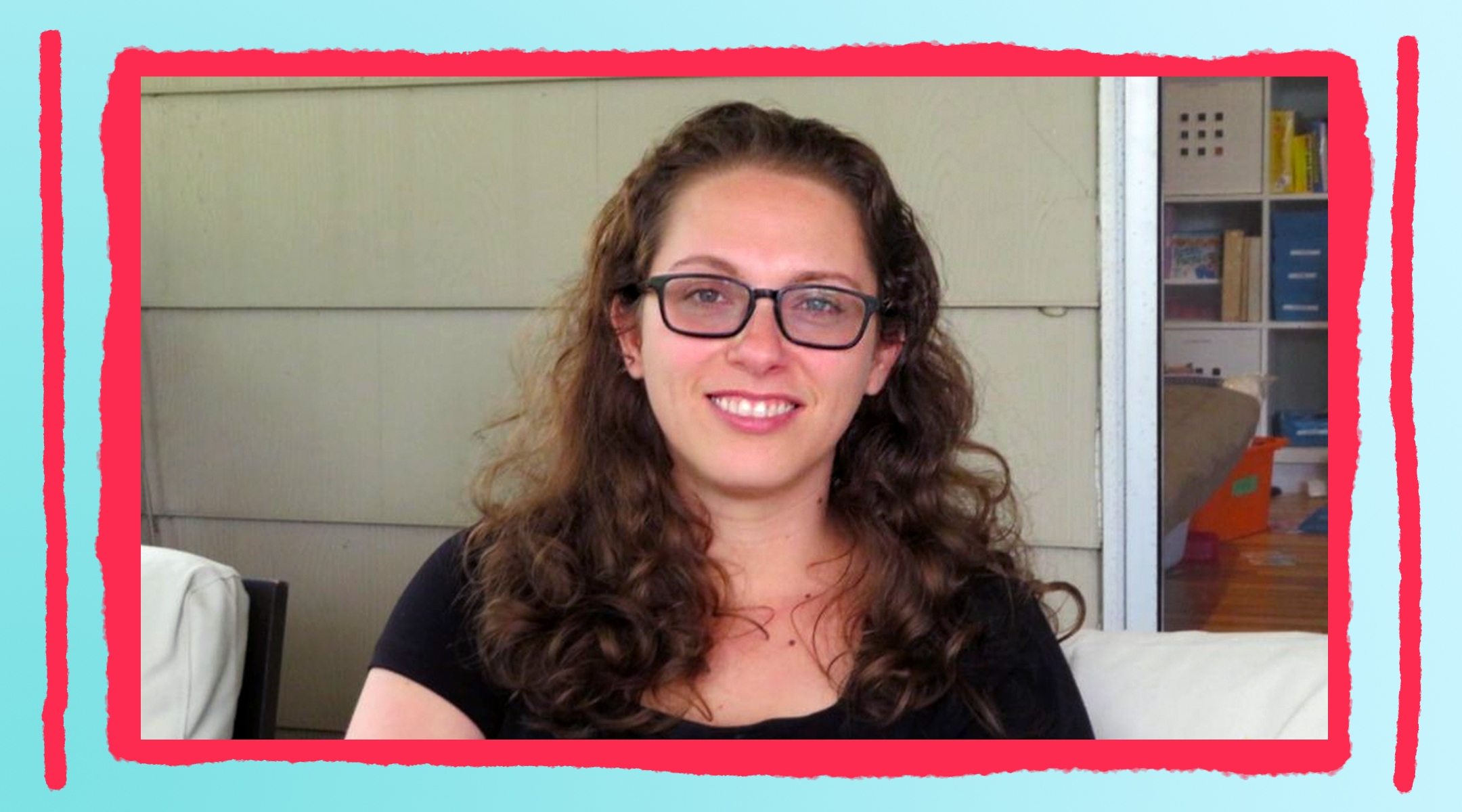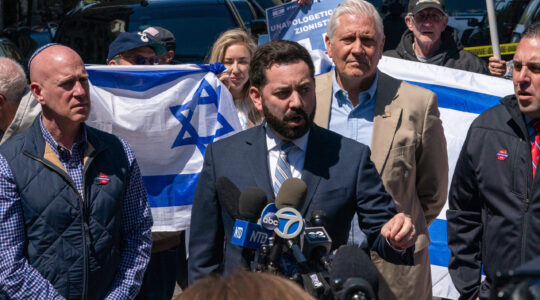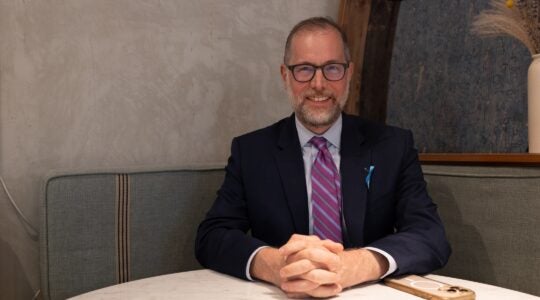WASHINGTON (JTA) — Bethany Mandel wasn’t unnerved back in May when people all over the world were decrying her as a “Grandma killer.”
After all, the mother of four and rising star in the world of conservative thinkers had invited the moniker when she posted a cri de coeur on Twitter against what she saw as indiscriminate application of quarantine restrictions.
“You can call me a Grandma killer,” Mandel wrote. “I’m not sacrificing my home, food on the table, all of our docs and dentists, every form of pleasure (museums, zoos, restaurants), all my kids’ teachers in order to make other people comfortable.”
Mandel’s six-tweet thread instantly turned into a battlefield in the culture wars, offering a salient indicator of the deep divide over how to handle the coronavirus that is crippling any efforts in the United States to bring the pandemic under control.
On the one side, fellow conservatives praised her bravery in the face of a new orthodoxy about the importance of “flattening the curve.”
On the other Noah Berlatsky, a culture critic for the Independent, a British newspaper, made her the poster child for what he said was a plague of “vice signaling” best exemplified by President Donald Trump’s embrace of dangerous behaviors as somehow patriotic.
A tweet by Warren Leight, a showrunner for the “Law and Order” franchises, was typical: “Can I also call you Nurse Killer, Friend Killer, Mentor Killer, EMT Killer, Jazz Musician Killer, Doctor Killer, NYPD Killer, Transit Worker Killer, Meat Plant Worker Killer, Immuno-compromised Person Killer?”
Mandel says she thinks her critics missed the point she was trying to make about government overreach.
“It’s not like, ‘Please call me Grandma killer because I want to kill Grandma,’” the Jewish writer, homeschooler and social media influencer said in a recent interview. “It’s like, ‘You can say those things but I don’t care because this is the situation.’ I thought that was pretty clear.”
But she also seemed to revel in the attention. “Grandma killer” is now in her Twitter bio.
Indeed, it is on Twitter — where she has nearly 80,000 followers — that Mandel does most of her battles. She relishes the fight and at the same time despairs of it, a contradiction that in a 90-minute chat earlier this summer she never quite resolves.
Mandel decried the current polarized political moment.
“Everything now has become politicized, every single thing, and it sucks,” she said.
But she said she finds it hard not to engage in the battle.
“I’m an only child, and I hate being told what to do. And that is so much of what drives my combativeness,” Mandel said.
Her fierceness is not just a function of being an only child. Mandel’s mother had suffered from lupus since before Mandel’s birth, and her father left home when she was a small child. Her mother raised her in upstate New York in relative poverty, including a period in a trailer park. Her mother died when she was 16 and she sought out her father to reconcile with him; he killed himself when she was 18. She had been born Bethany Horowitz, but as a young adult she changed her last name to her mother’s, Murphy.
“She’s a survivor, she’s strong, she’s determined,” said Sal, who for a time was her stepfather. (He asked that his last name be kept private.) “She’s not going to let life get the best of her or anyone else get the best of her. That’s who she’s become.”
Her mother was Roman Catholic and her father was Jewish. Given a choice of religions when her parents split up, she embraced Judaism, saying that the Jesus statues creeped her out and that she found resurrection to be implausible. Plus, her mother told her Jews were the people of the book, and she loved books.
Mandel attended Rutgers University in part because of the reputation of its Hillel. It was through friends she made at Hillel that she met her husband, Seth Mandel, and converted to Orthodox Judaism.
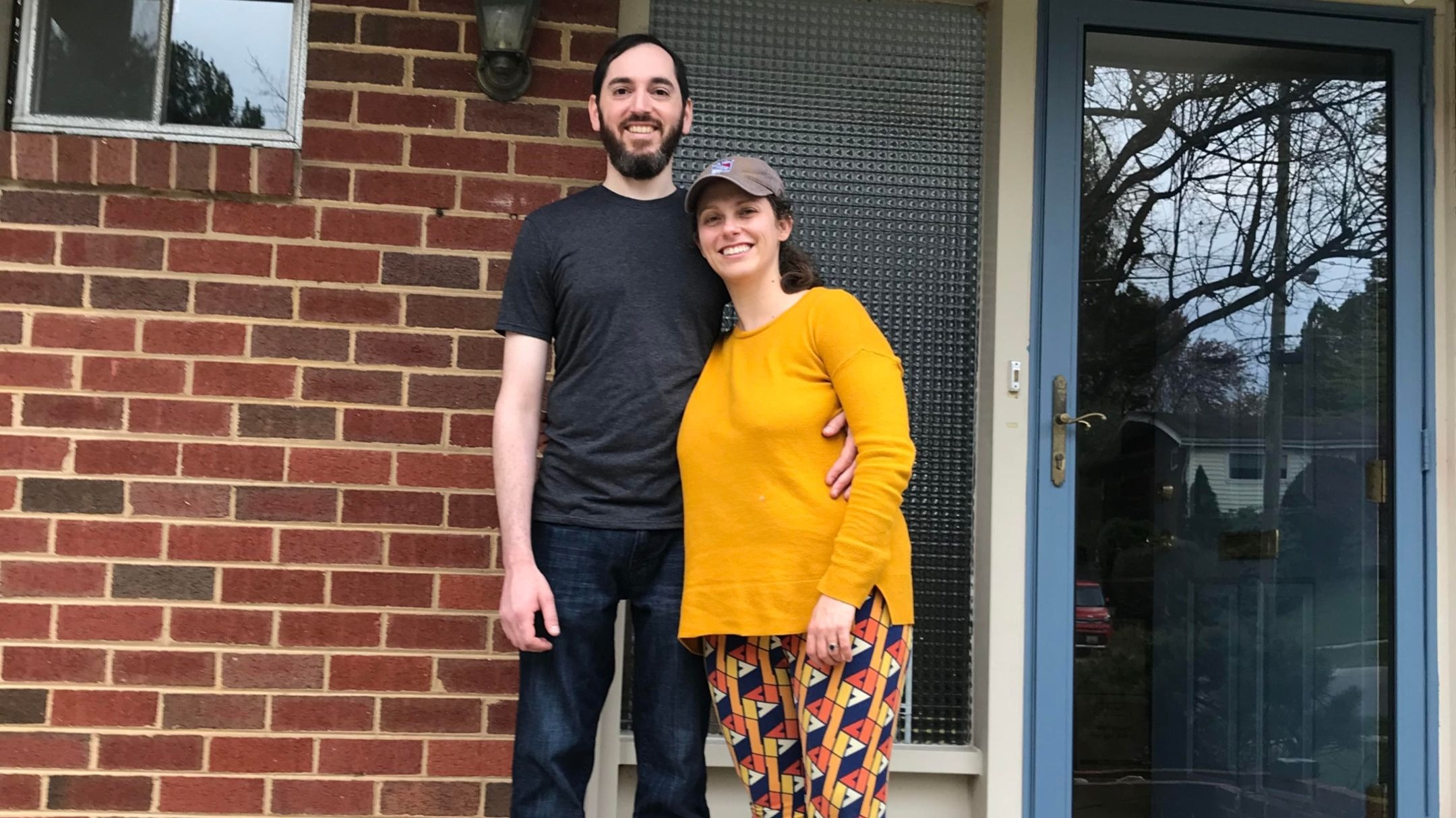
Seth and Bethany Mandel outside their home in this undated photo. (Courtesy of Bethany Mandel)
She learned years later that the Washington, D.C., rabbi who supervised her conversion, Barry Freundel, had set up an elaborate peeping system in the synagogue’s mikvah. She had been filmed while preparing for the ritual bath that would mark her conversion.
After the revelations about Freundel, Mandel began seeing tolerance for abuse everywhere in the Orthodox community.
“We stepped back,” she said. “We stepped back from the organized Orthodox community. We’ve never really stepped back in. We don’t go to shul. We have our like nice little like Orthodox life here, but we don’t — we don’t send our kids to school, we don’t go to shul. There’s definitely a conscious disconnect for us.”
The Mandels moved up through the ecosystem of conservative thought, working together at Commentary. Seth Mandel moved on to editing the New York Post’s op-ed page and is now the editor of the Washington Examiner’s weekend magazine. Bethany Mandel contributes opinions to Jewish publications (including occasionally to the Jewish Telegraphic Agency) and to a number of conservative outlets. She is an editor, writer and podcaster at Ricochet, a site that calls itself a place for “conservative conversation.”
Her boss there, CEO Scott Immergut, said he valued her ability to break from tribalism, praising Trump when she thinks he merits it and damning him when he does not.
“She’s Trump-agnostic. You know, she praises him for the things that she likes and she attacks and she criticizes him for the things that she doesn’t, which is the way it should be,” Immergut said. “There’s a certain portion of the Republican Party who says he is the president and he can do no wrong. I think that’s a little bit creepy, no matter who the president is.”
In our interview, Mandel cites as an example of her Trump bifurcation his North Korea policies.
“I’m passionate about North Korea human rights,” she said. “He had a great State of the Union two years ago and he brought defectors and that was incredible. … That was amazing Trump, and then like two weeks, three weeks later, he’s like talking about his buddy, Kim Jong Un.”
She fundraises for refugees from North Korea and is helping to modify for Jewish consumption a homeschooling curriculum originally tailored for Christians. (She is homeschooling her four children.)
Her experiences drive her pen to paper; she often uses them to close a wound, whether it’s suicide or clergy abuse or the loss of a parent. Her longform writing is elegant and expansive. Absent is the pugnaciousness she brings to her social media, and in its place is unhurried research culminating in a measured recommendation.
Her voraciousness for research dates to her childhood, said Sal, with whom she remains close even after he divorced her mother. When she was about 10 years old, he recalled, “She wanted to understand where waste went. Waste management. Human waste. So instead of asking about it, she went to the library and took out a book on sewage treatment. What child does that?”
It was another childhood memory that prompted Mandel’s previous foray into viral notoriety. She recalled befriending a girl on her school bus who was volleying anti-Semitic epithets, and then revealed that she was Jewish.
That anecdote was her lead-in to a 2017 Forward article about three people, an African-American and two Jews, who reached out to people in hate groups instead of isolating them and succeeded in turning them away from hate. It was titled “We need to start befriending neo-Nazis” and the headline has haunted her since, repeatedly surfacing on the left as an extreme example of bothsidesism.
Yet her prescription of interventions to draw away young people susceptible to the far right is a liberal orthodoxy. The Obama administration subsidized intervention programs targeting nascent white supremacists, and the Trump administration drew liberal fire for ending them.
Mandel acknowledges that the headline was clickbait, but again she could not resist the fray.
“So I wrote that neo-Nazis piece and I got it and I’m still paying for it all the time,” she said. “So I made my Twitter banner the headline for like six months.”
She followed that article with one titled “How the Angry Left turned me into a Nazi.” Her husband and her editor at the Forward advised her against the second headline.
“They’re like, ‘You’re just hitting the bee’s nest’ and like, yes, right. Yes, that is exactly what I’m doing,” Mandel said.
What inclines Mandel to engage with the abuse that has driven so many others from Twitter? Another friend, the journalist Salena Zito, says it’s important to understand that Mandel’s maternal instincts extend to the ideas she embraces and the political company she keeps.
“She’s very much a mom, and very protective,” said Zito, who, like Seth Mandel, has written for the New York Post and the Examiner. “And that quality of hers is sort of transferable into how she protects things on social media that she thinks is important.”
The story of how Zito and Mandel became friends is illustrative: Mandel’s embrace of Zito preceded the friendship. Mandel came to Zito’s defense in 2018, when Zito was accused of manufacturing quotes in her political coverage of Trump country. An outraged Mandel volunteered herself and her husband to go through Zito’s recordings to demonstrate that the quotes were real, a multi-day enterprise.
“She was my Joan of Arc,” Zito said. “She barely knew me, and you know the combative nature that you talked about, she came with her sword and protected me and the work that I do in a very noble and vibrant way.”
Mandel, who grew up moving from town to trailer park and whose parents disappeared before she exited her teens, who was grotesquely betrayed by the rabbi she trusted to guide her into a religion she loves, curates her community, and then builds guardrails around it.
She has four close friends who all had babies at around the same time, and like her are also iconoclastic conservative writers. One of them, Mary Katharine Ham, has her own Bethany story: Her first husband died suddenly just before she gave birth to her second daughter, and her friends, frantically, wanted to help her.
“A bunch of people got together and said, ‘Let’s ask her what she needs,’ and Bethany smartly gathered a bunch of people and said, ‘Do not ask her what she needs. I will tell you what she needs. She needs a night nurse.’ And she had people donate thousands of dollars to a fund for me to have someone around once the baby was born,” Ham recalled.
Mandel shares her family online in ways that 59-year old me can barely grasp. I am, unsettlingly, familiar with the three adorable mini-Mandels who greet me on the lawn because she and Seth have described them so accurately on Twitter. I can immediately pick out voluble and astute Altima, his social media name, the boy who was born three years ago on a New Jersey thoroughfare in his parents’ car.
Her living room and dining area are covered with books because Bethany Mandel has loved books since she was a child, which I know because it’s what she tells the world, and because Bethany Mandel homeschools her kids, which I know because it’s what she tells the world.
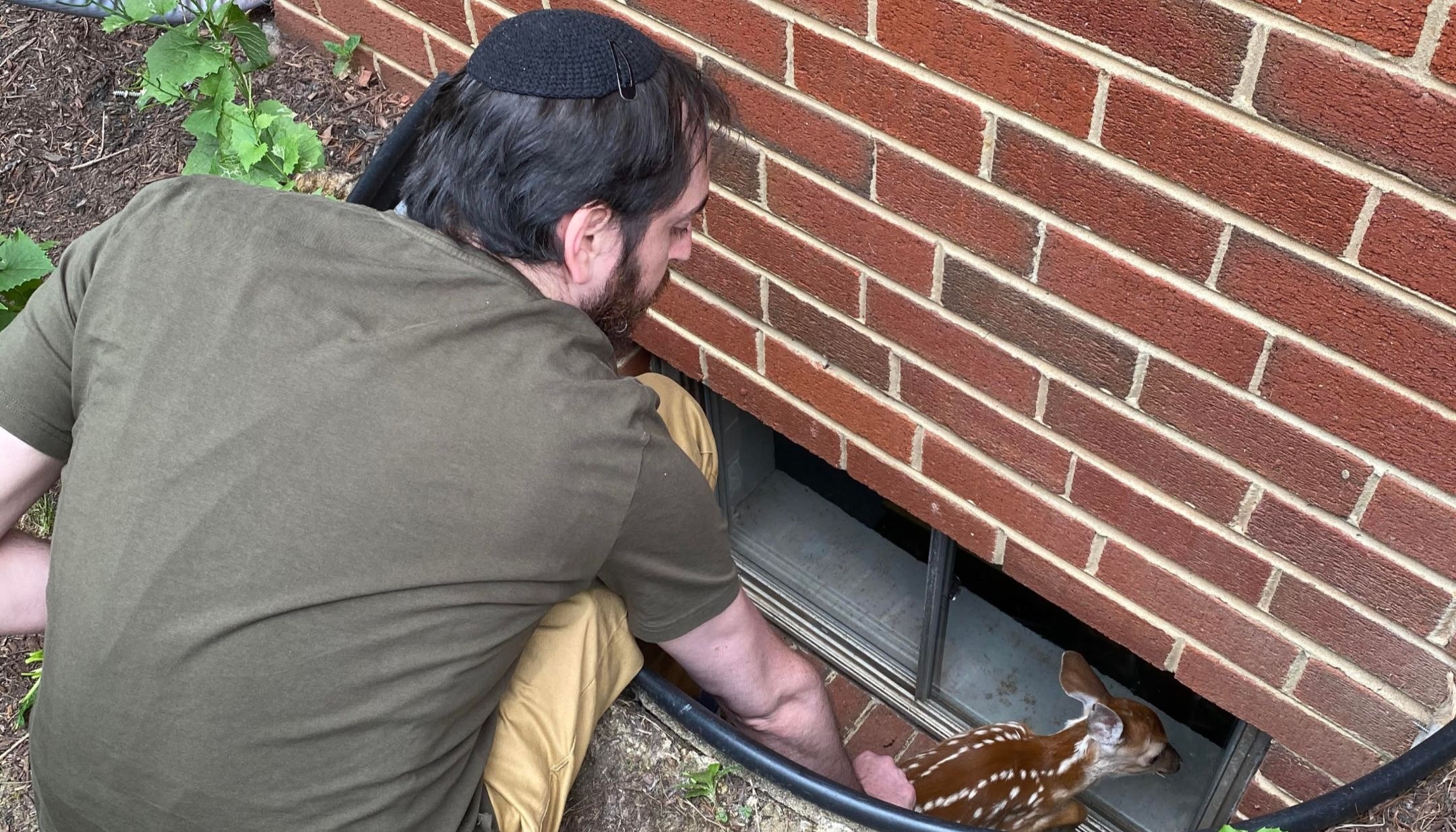
Seth Mandel rescues a baby doe from a window well at his home, May 26, 2020. (Bethany Mandel)
The day after I visit, Mandel posted a video of her husband rescuing a baby doe from a window well. Not long after she posted a thread about surviving a crisis in her marriage that nearly ended in divorce.
She posts what she knows her family will tolerate. Her kids’ faces do not appear online, nor do their real names.
“I can confidently say he’s never going to mind that we tell funny stories about him,” she said of Altima. “And they’re never — like they’re never — him doing like awful things — because he does awful things — but like when he says something cute.”
Mandel lives an expansive life online and off, one curated from a defensive crouch, ready to take on all comers.
It all makes sense, said her friend Ham.
“Once you’ve gone through losing both your parents before 19, I guess, and come out the other side, people yelling at you on Twitter doesn’t seem like that big a deal,” she said.
But while Mandel lays bare so much of what she believes and does online, she said she plans to keep one big decision private: her voting plans in November’s presidential election. In 2016, she joined a vocal contingent of NeverTrumpers. “I’m loathe to become an avatar for a particular position” this year, she said.
“A lot has happened in the last few months. I thankfully live in a state where it doesn’t matter,” Mandel said. “Once I make a decision I’m going to keep it to myself this time around.”
JTA has documented Jewish history in real-time for over a century. Keep our journalism strong by joining us in supporting independent, award-winning reporting.
